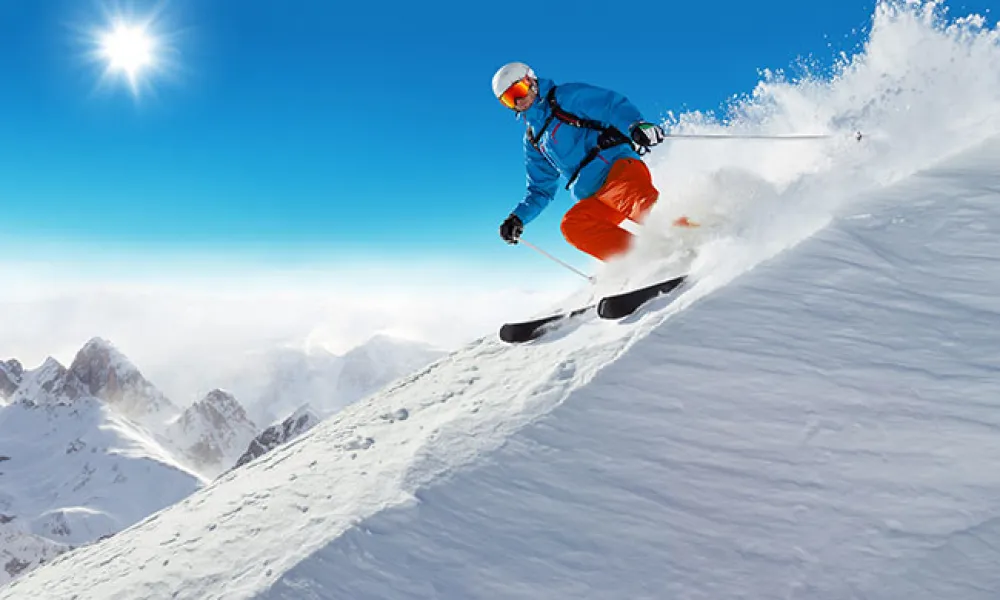For skiers and snowboarders, there’s little like the Pacific Northwest in the winter. However, with the proximity of the mountains, it can be just as easy to hit the slopes as to forget the importance of proper safety practices. In 2014, the US Consumer Product Safety Commission reported more than 114,000 snow skiing-related injuries and another 79,000 related to snowboarding. While an accident can force you to sit the season out, it can also have a longstanding impact on your orthopedic health. Follow these safety procedures to minimize the risk of an accident and maximize your time on the mountain.
1) Condition in Advance
Preparing for skiing doesn’t begin when you first get on the lift. Skiing is more demanding on our muscles than regular cardio, so integrating strength training into your workout routine will help develop leg, back, and core muscles. Warming up cold muscles for a few minutes before skiing and stretching before and after will also be beneficial for flexibility and recovery.
2) Invest in Proper Equipment
Having safety equipment, like helmets and wrist guards, is key to staying safe. Also ensure that your boots fit properly and give you control while your bindings are adjusted so that your knees aren’t falling inward. Though a cylindrical knee brace won’t protect against a sudden, damaging rotation, wearing one can provide support for someone with a torn ACL who doesn’t want it to stand in the way between them and fresh powder.
3) Don’t Push Yourself
If you’re more of a novice, taking a skiing class can be a great opportunity to improve your technique and form and enhance your control. Skiers of any level are more at risk for injury when they’re tired, so taking a rest hour (or day, depending on how long your ski trip is) is crucial to keep you alert and in control.
4) Pay Attention to Injuries
Skiers are at risk for knee injuries and snowboarders for upper extremity fractures, though not all injuries require a trip to the doctor. If swelling persists after a few days and the joint is unable to bear weight, you could have a fracture or ligament injury and should see an orthopedic surgeon to learn about treatment options.
Have a ski or sports injury? Concerned about joint pain that could impact your ability to ski? Consult one of POA’s orthopedic surgeons in Renton, Covington, and Maple Valley to learn what surgical or non-surgical treatment might be best for you. Call (425) 656-5060 for an appointment at one of our western Washington orthopedic clinics.

